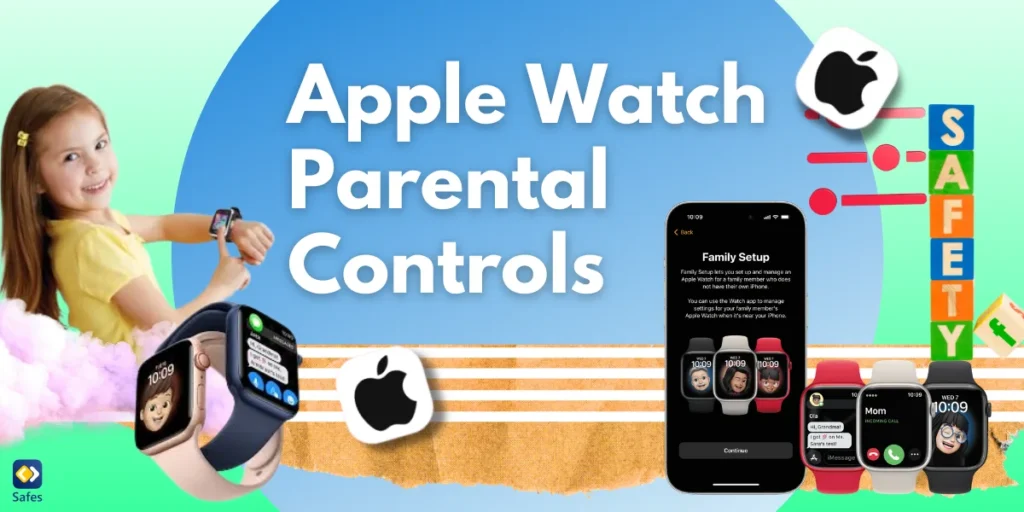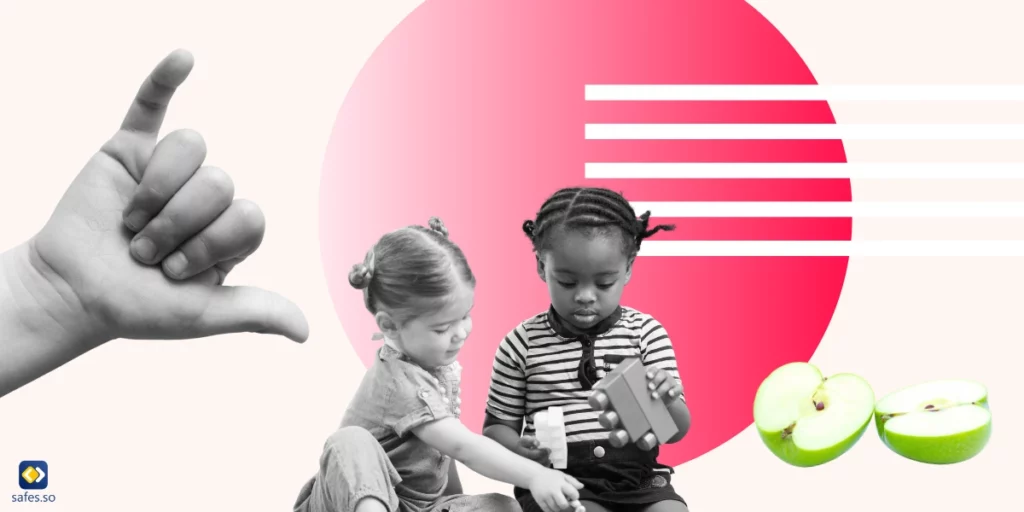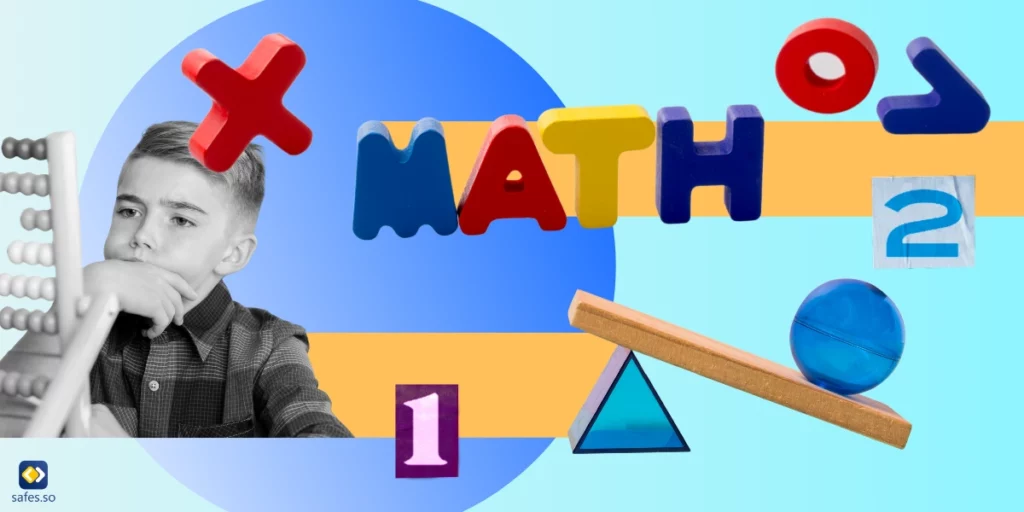Welcome to our uplifting guide on how to deal with a narcissist family member or relative, specifically when it comes to protecting our precious children! Narcissism, a personality trait marked by an inflated sense of self-importance and a lack of empathy, can, unfortunately, rear its head within family dynamics. It’s essential to recognize the signs early on, as a narcissistic relative can subject children to emotional abuse, manipulation, and neglect. But fear not! In this blog post, we’ll explore valuable tips and strategies to safeguard our little ones from the harmful effects of narcissistic people who are close to us, ensuring a brighter and healthier future for them. So, let’s dive in and learn how to foster a nurturing environment for our children, even when faced with a narcissist in the family!
Download and Start Your Free Trial of the Safes Parental Control App
Spotting the Signs of Narcissistic Family Members or Relatives
Recognizing the signs of narcissistic behaviors in our family members or relatives is essential to protect our little ones and ourselves from potential emotional harm. Common narcissistic behaviors include gaslighting, where a person manipulates others into questioning their reality, and triangulation, where the narcissist creates drama by pitting two parties against each other. Keep an eye out for these sneaky tactics! Remember, it’s crucial not to blame ourselves or our children for the narcissist’s behavior, as they are the ones responsible for their actions.
By being aware of these signs, we can build a supportive and loving environment for our families. So, let’s learn together and grow stronger!
- Related Article: Emotional Abuse: Signs of a Narcissistic Parent

Setting Boundaries: Your Shield Against the Narcissist Relative
Boundaries are like the invisible force field that keeps you and your child safe from the clutches of a narcissist relative. Setting and enforcing boundaries are essential tools in your arsenal to protect your little ones from the negative impact of a narcissistic relative.
Here are some sparkling tips to help you set and enforce boundaries confidently:
Use “I” statements: When communicating your boundaries, use “I” statements to express your needs and feelings without sounding accusatory. For example, say, “I feel uncomfortable when you criticize my parenting choices. I would appreciate it if you respect my decisions.”
Be firm and consistent: Narcissists may test your limits, so it’s crucial to be firm and consistent with your boundaries. Remember, you’re the captain of your ship, and you get to decide who comes aboard and how long they stay.
Know when to disengage: If a narcissist relative continues to breach your boundaries, it’s essential to disengage from the conversation or situation. You can say, “I won’t tolerate this behavior, and I’m ending this conversation now.” Then, walk away or hang up the phone.
Seek support: Establishing boundaries with a narcissistic relative can be challenging. Reach out to a therapist or a support group to get guidance and encouragement from people who understand your struggle.
Protect your child: To shield your child from the harmful effects of a narcissist family member or relative, limit contact when necessary. Provide emotional support to your little one by actively listening to their feelings and reassuring them that they’re valued and loved.
By setting healthy boundaries, you can create a safe space for you and your child to grow and thrive, away from the turmoil that a narcissist can bring. Remember, you are the superhero in your child’s life, and with these tips in hand, you’ll be well-equipped to defend your family from the narcissistic forces that may lurk in your midst!

Supporting Your Child’s Emotional Well-Being
It’s essential to engage in open, honest conversations with your little ones about the narcissists they might encounter. Doing so will help them better understand the situation and navigate the complexities of life with a cheerful spirit. So, let’s dive right into the delightful world of communicating with our children about how to deal with a narcissist family member or relative!
Be honest, but age-appropriate: When explaining narcissistic behavior to your child, it’s crucial to be truthful, yet tailor your language to suit their age and maturity. Offer them a simplified understanding of the situation so they don’t feel overwhelmed or confused. Remember, honesty is the best policy!
Validate their feelings: It’s essential to let your child know that their feelings are valid and important. If they express confusion, anger, or sadness about the narcissistic family member’s behavior, empathize with them and assure them that their emotions are completely natural.
Teach healthy coping mechanisms: Equip your child with a toolbox of healthy coping strategies, from deep breathing exercises to creative outlets like drawing or writing. Encourage them to express their emotions and focus on the positive aspects of life, fostering resilience in the face of adversity.
Help them set boundaries: Teach your child the importance of setting boundaries with the narcissistic family member. This will help them learn how to protect their emotional well-being and stand up for themselves in a respectful, assertive manner.
Seek professional help if needed: If your child’s emotional well-being is significantly impacted by the narcissistic relative’s behavior, don’t hesitate to seek professional help. A skilled therapist or counselor can provide invaluable support and guidance, helping your child flourish even in challenging circumstances.
Remember that life is filled with sunshine and rain, but with open communication, empathy, and the right strategies, you can help your child navigate dealing with narcissistic family members with grace and resilience. Keep the conversation going, support their emotional well-being, and watch them bloom into emotionally intelligent individuals who can tackle any situation with a smile!

How Can Safes Help with Narcissistic Behaviors in Your Family?
The Safes parental control app is here to bring a breath of fresh air to your parenting journey! With the power to monitor and manage screen time, filter content, and ensure a healthy digital environment, Safes can help you cultivate a safe, supportive, and loving atmosphere. By allowing you to establish clear boundaries and foster open communication, this fantastic app is like having a parenting sidekick in your pocket, ready to assist in creating a harmonious family dynamic where everyone flourishes.
The good news is that Safes is a multiplatform app, meaning you can install it on all smartphones, tablets, and computers on Android, iOS, Windows, and Mac platforms. Explore how Safes can be your guiding star toward a more balanced, joyful, and empathetic family life using the links below:
- Windows parental controls
- Macbook parental controls
- Parental controls on Android
- iPhone parental controls
Conclusion
In a nutshell, it’s highly important to understand how to deal with a narcissist family member or relative to protect our little ones from their toxic influence. Take the first step toward dealing with the problem by spotting the common narcissistic behaviors. Remember not to blame yourself or your kid for other people’s narcissistic flaws. Setting boundaries with the narcissistic relative, providing a safe space for your child to express their feelings, and talking about the situation openly with them can help reduce the negative impact on your child’s emotional well-being to the lowest. Besides, you can use Safes’s help in your parenting and prevent narcissistic behaviors from affecting the family dynamics.
Use these tips and strategies, and can shield your child from the narcissistic relatives’ poison and grant them a healthy, nurturing environment to grow and thrive.
Your Child’s Online Safety Starts Here
Every parent today needs a solution to manage screen time and keep their child safe online.
Without the right tools, digital risks and excessive screen time can impact children's well-being. Safes helps parents set healthy boundaries, monitor activity, and protect kids from online dangers—all with an easy-to-use app.
Take control of your child’s digital world. Learn more about Safes or download the app to start your free trial today!




